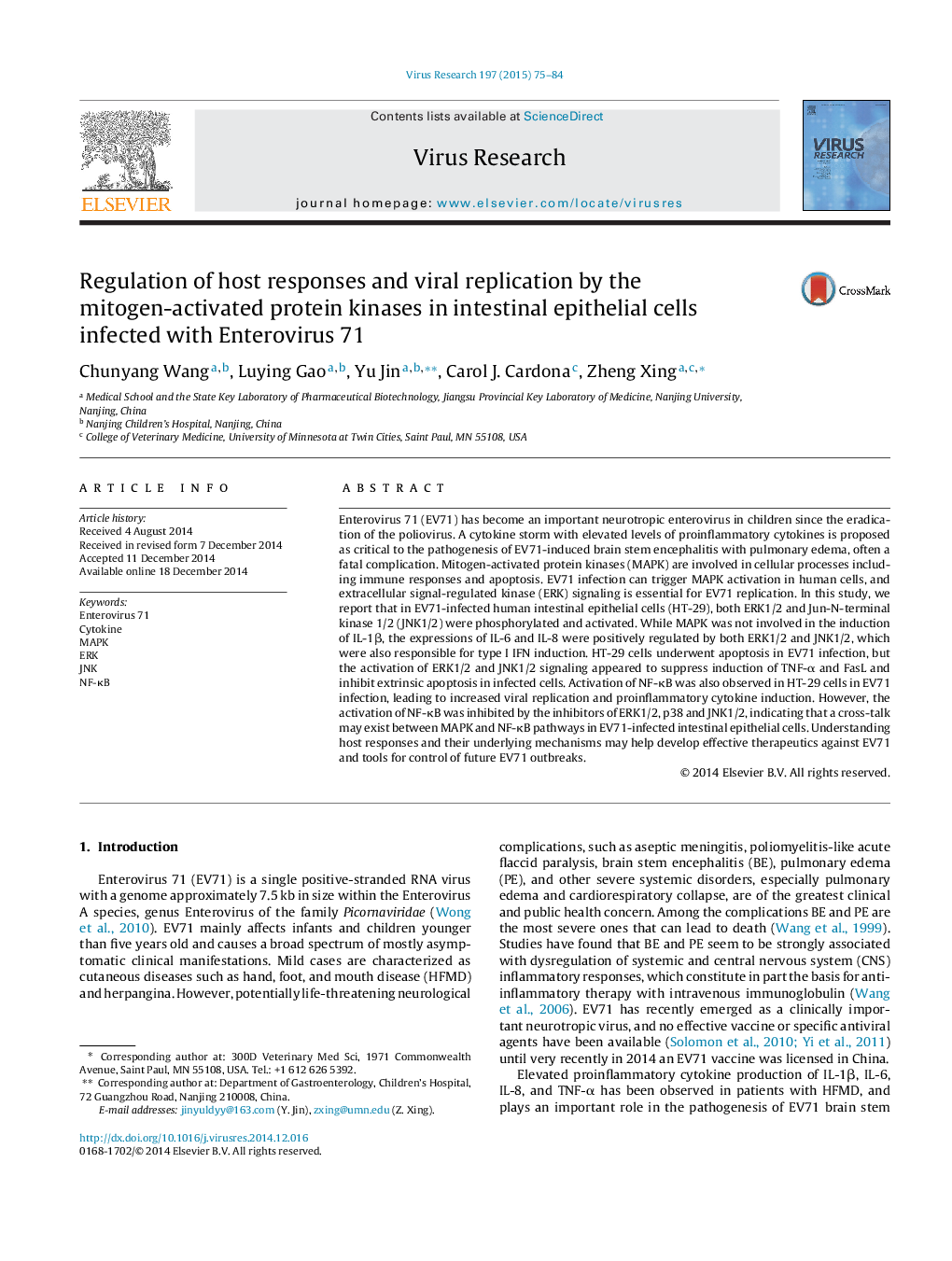| Article ID | Journal | Published Year | Pages | File Type |
|---|---|---|---|---|
| 3428302 | Virus Research | 2015 | 10 Pages |
•Enterovirus 71 (EV71) is an important neurotropic enterovirus in children.•Mechanisms of host responses were explored to understand how they are regulated in EV71-infected intestinal epithelial cells.•EV71 viral replication and host responses were regulated by MAP kinase and NF-κB signaling in intestinal epithelial cells.
Enterovirus 71 (EV71) has become an important neurotropic enterovirus in children since the eradication of the poliovirus. A cytokine storm with elevated levels of proinflammatory cytokines is proposed as critical to the pathogenesis of EV71-induced brain stem encephalitis with pulmonary edema, often a fatal complication. Mitogen-activated protein kinases (MAPK) are involved in cellular processes including immune responses and apoptosis. EV71 infection can trigger MAPK activation in human cells, and extracellular signal-regulated kinase (ERK) signaling is essential for EV71 replication. In this study, we report that in EV71-infected human intestinal epithelial cells (HT-29), both ERK1/2 and Jun-N-terminal kinase 1/2 (JNK1/2) were phosphorylated and activated. While MAPK was not involved in the induction of IL-1β, the expressions of IL-6 and IL-8 were positively regulated by both ERK1/2 and JNK1/2, which were also responsible for type I IFN induction. HT-29 cells underwent apoptosis in EV71 infection, but the activation of ERK1/2 and JNK1/2 signaling appeared to suppress induction of TNF-α and FasL and inhibit extrinsic apoptosis in infected cells. Activation of NF-κB was also observed in HT-29 cells in EV71 infection, leading to increased viral replication and proinflammatory cytokine induction. However, the activation of NF-κB was inhibited by the inhibitors of ERK1/2, p38 and JNK1/2, indicating that a cross-talk may exist between MAPK and NF-κB pathways in EV71-infected intestinal epithelial cells. Understanding host responses and their underlying mechanisms may help develop effective therapeutics against EV71 and tools for control of future EV71 outbreaks.
